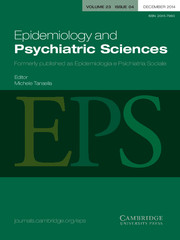Discrimination against people with mental health problems is a global phenomenon. It takes different forms in different cultures, but almost universally people are treated differently on the basis of their mental health. In the UK
Discrimination against people with mental health problems is a global phenomenon. It takes different forms in different cultures, but almost universally people are treated differently on the basis of their mental health.
In the UK the Time to Change campaign has been working to reduce mental health discrimination since 2009. To monitor the effectiveness of the campaign, the annual Viewpoint survey has been tracking the amount of discrimination experienced by people with mental health problems since 2008. This has found that, despite an initial fall, mental health discrimination has risen in the last two years alongside a general hardening in social attitudes.
Since 2011 the Viewpoint survey has included a measure of access to social capital, the Resource Generator-UK (RG-UK). The RG-UK measures a respondent’s access to a list of 27 social resources, which are standardised for the UK general population. I developed the RG-UK from a Dutch version about ten years ago and it has been used in a number of studies since then.
Social capital helps us to get on and get ahead in our lives. We rely on other people we know to provide us with information, practical assistance, advice and friendship, most of which we take for granted. Life can be much harder without these people around us and the resources they provide (not forgetting, of course, that we often give others as much as we receive from them).
People recovering from severe mental health problems frequently rely on other people for daily assistance, reassurance and opportunities for meaningful occupation. Access to social capital improves quality of life and enhances well-being. Without it, recovery of a meaningful life can be so much more difficult.
I was interested to see if discrimination reduced access to social capital. If the Time to Change campaign is able to reduce discrimination there may be a possibility that individuals’ access to social capital is improved thus increasing opportunities for recovery.
With colleagues in the Viewpoint team from the Institute of Psychiatry and the McPin Foundation, I analysed the RG-UK data from the 2011 survey to see if experienced discrimination was associated with reduced access to social capital. The findings are published in the June issue of the journal Epidemiology and Psychiatric Sciences.
Unsurprisingly, we found that people who experienced more discrimination had access to less social capital, highlighting its damaging social effect. We also found that older age, not being in employment, being male, not being educated to degree level and having been sectioned under the Mental Health Act at some time in the past were also associated with access to less social capital.
People who experienced discrimination from friends had access to less social capital from friends. Additionally, people who experienced discrimination in finding or keeping a job, in social life or who were shunned by other people, also reported less access to social capital.
It is important to note that as this data was collected in a cross-sectional survey it is not possible to be certain about cause and effect. However, as the questions about discrimination refer to past events and the questions about social capital relate to the present, it is possible to see how experiences of depression may influence accessibility to social capital.
Our findings highlight the potential wider social impact of discrimination. It is not only personally damaging, it can harm relationships through which people may otherwise obtain social resources which can assist in their recovery from a mental health problem. The imperative to challenge discrimination is stronger than ever.
Additional information
The full paper is available free of charge via the link below:


